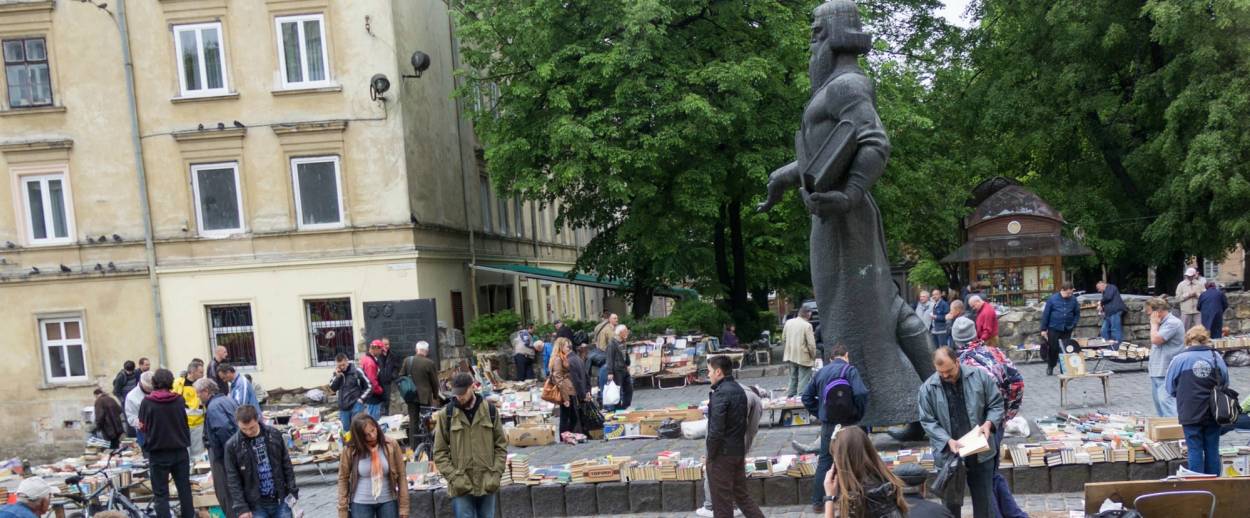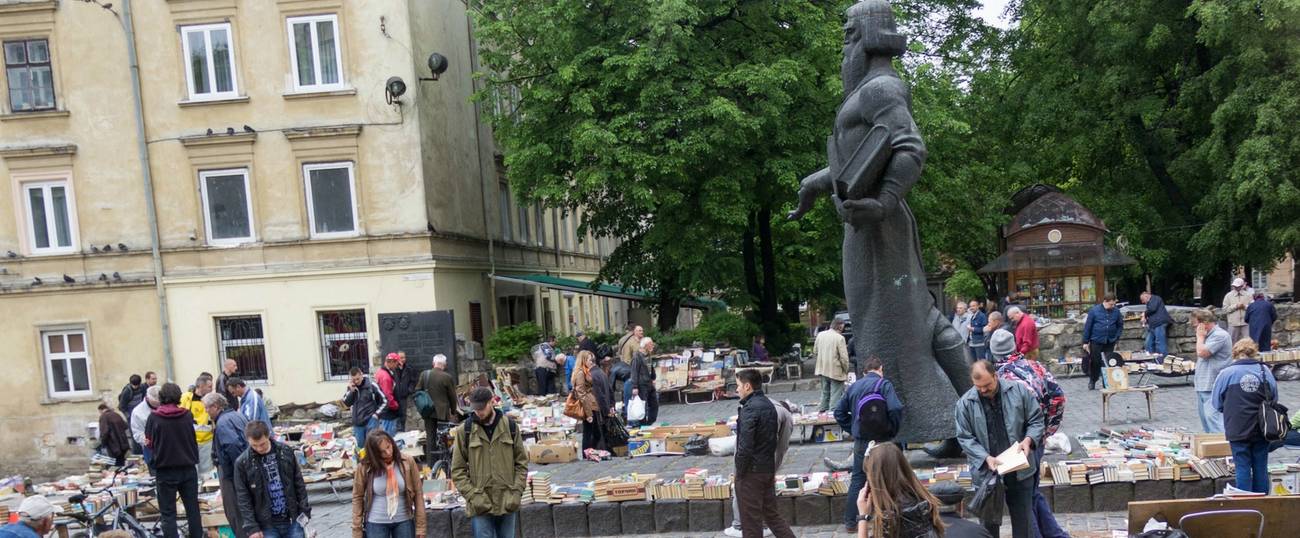A Ban on Russian Books
The largest city in Western Ukraine votes to ban Russian-language cultural products




Lviv is Ukraine’s westernmost region and it is widely thought to be the center of traditional Ukrainian intellectual, artistic and literary life. It is also widely seen as the most nationalistic region of the country. Yesterday evening, the Lviv Book Fair opened up with a technically and artistically adroit “ethno evolution” show at the national opera house. The show was all pageantry and pagan overtones, with singers and lithe dancers in ethnic costumes reenacting the history of the nation. I suddenly recalled that I was in Lviv when the characters dressed in the red and black of the nationalist UPA flag—the flag of the World War II era Ukrainian Insurgent Army led by Stepan Bandera—quoted a nationalist line about “Moskkali (Muscovite) invaders”.
The day before the beginning of the book fair, seen by many Ukrainians as the most important literary event in the country, launched a symbolic attack against the Russian language.
(Full disclosure: I took part in the book fair as part of a panel discussion on a special issue of my magazine The Odessa Review relating to the history of Ukrainian-Jewish relations).
The Lviv regional council passed a motion by a two thirds majority banning the public consumption of all Russian-language books, films and music within the region. The AP reported that ”the legislature in the Lviv region voted on Wednesday to “impose a moratorium on the public broadcast and use of Russian-language content” until Russia withdraws all of its troops from Ukraine.”
It was not immediately clear how the ban would be enforced.” Native Russian speakers in Lviv are not rare—though virtually all are fluent in Ukrainian and have a complex and nuanced identity as loyal citizens of Ukraine—and the language is often spoken in public. In fact I spoke in Russian during my own panel at the Lviv book fair earlier today and responded to a mixture of questions from the audience in English, Ukrainian and Russian.
Some, but certainly not all, Ukrainians see Russian as the language of the aggressor state, and view the language ban and other such policies as critical to rebuffing Moscow’s hybrid warfare—the broad information operations approach aimed at moving Ukraine back into the Russian sphere of influence.
“The decree is impractical and unworkable and therefore pointless,” Prof. Taras Kuzio of the Kiev Mohyla Academy University, one of the English speaking world’s foremost experts on Ukraine, explained to me while we attended the forum together.
“At the Lviv Publishers Forum there are books in Russian and most kiosks have large numbers of Russian language media. At the same time, it would be nice for those who are critical to also at least once complain about the total lack of media, educational and cultural rights for the Ukrainian minority, the second largest in Russia” he added.
Indeed, Russia has consistently violated the rights of its own Ukrainian diaspora over the last four years.
A legitimate Ukrainization of the public sphere is ongoing in Lviv and other parts of the country with an emphasis on education policy, television and radio language quotas. But there is the danger of overreach in trampling the rights of minorities. It is precisely blanket and radical bans which serve to confirm Moscow’s propaganda on the issue of the rights of Russian language minorities in Ukraine. Such arguments (which serious outside critics denounced as ridiculous at the time) served as the original pretext for Russian troops invading Ukraine in early 2014 and the annexation of the Crimean peninsula that came later.
The political theater of the new moratorium on Russian cultural products takes place against a backdrop of more significant upcoming political measures. Earlier today, the Ukrainian parliament took the first of several votes in favor of including aspirations for European Union and NATO membership in the country’s constitution. The resolution passed with 321 votes, which is enough to clear the constitutional threshold of 300. All this takes place within the context of the start of the Ukrainian presidential campaign, with presidential elections slated for the end of next March, with parliamentary elections slated to follow several months later.
While the language ban was the action of a single regional council in the most nationalistic part of the country, and not the policy of the Kiev government, many critics argue that it is a dangerous direction for Ukraine to take. Indignant denunciations of the policy flowed in, not only, predictably, from Moscow, but as well from various Western embassies in the country.
Vladislav Davidzon is Tablet’s European culture correspondent and a Ukrainian-American writer, translator, and critic. He is the Chief Editor of The Odessa Review and a Non-Resident Fellow at the Atlantic Council. He was born in Tashkent, Uzbekistan, and lives in Paris.